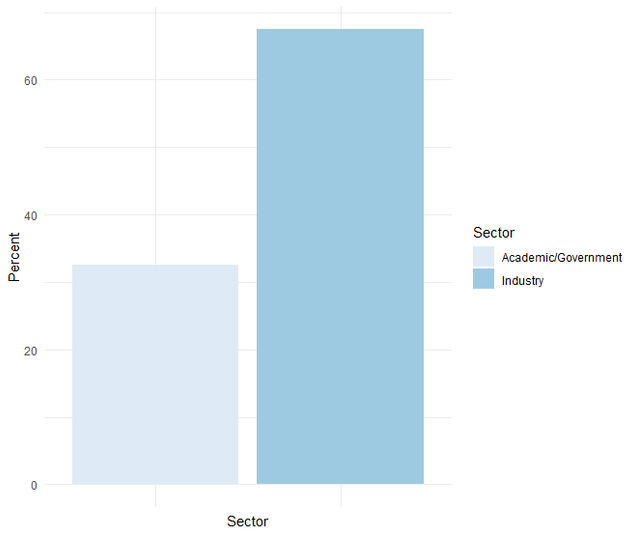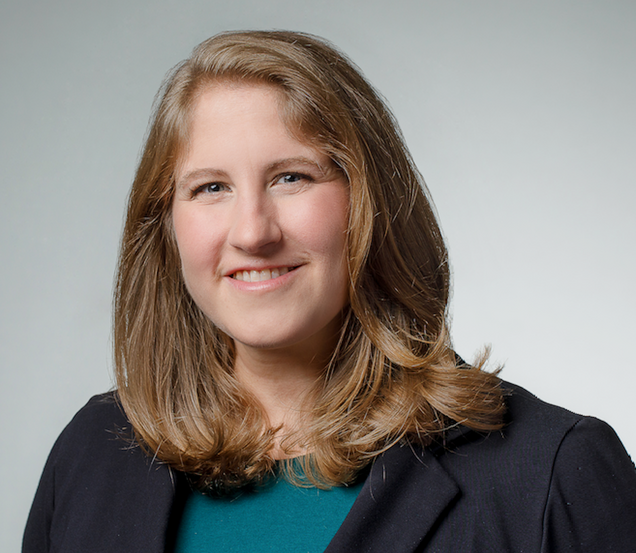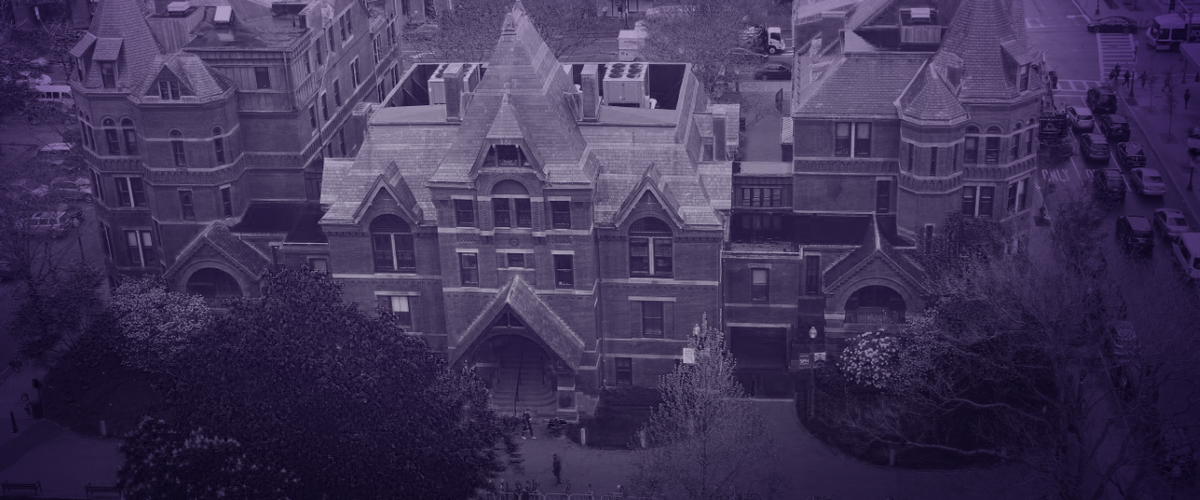Curriculum
The PhD in Biostatistics trains students in cutting edge data analysis techniques, statistical theory, and effective collaborative skills for biomedical and public health research. The program is jointly administered by the Department of Biostatistics at the School of Public Health in collaboration with the Department of Mathematics & Statistics at the Graduate School of Arts & Sciences. Our graduates are prepared for a career as a professional, academic, or industrial biostatistician in biomedical or epidemiologic sciences.
Our students work in research teams committed to performing innovative and impactful research in areas such as statistical genetics and genomics, clinical trials, big data analytics, machine learning and AI with applications in areas such as health equity, substance use disorders, Alzheimer’s Disease and dementia, infectious diseases, and cancer.
Our students enjoy a student-focused supportive training environment based in a highly productive and collaborative research environment. We are committed to engaging in research to improve health equity and support underserved communities. We are embedded in Boston Medical Center, the largest safety net hospital in New England and a part of the Boston University School of Public Health with a commitment to improving the health of all.
Program Directors:
Program Elements
Coursework
Students entering with a bachelor's degree must complete a total of 64 credits (16 classes).
Students entering with a master's degree must complete at least 32 credits (8 classes).
It is expected that students take courses from both the Biostatistics Department in the School of Public Health and the Mathematics & Statistics Department in the Graduate School of Arts & Sciences.
Qualifying Exams
Upon completion of coursework, each student must pass two Qualifying Examinations. One is focused on applied material and the other is focused on more theoretical topics.
Teaching Opportunities
All students are required to TA at least once during their time as a PhD student. Opportunities to teach outside of this are available to our PhD students.
Dissertation
The dissertation work must address a relevant question in statistical methodology and pose a new approach, extend an existing approach, or provide novel application of an existing method. When the dissertation is completed, the candidate defends his or her work before the dissertation committee. More information about the dissertation requirements is available in the Graduate School of Arts & Sciences Bulletin.
Funding
Students admitted to the PhD program (post-master or post-bachelor) in Biostatistics at Boston University as a full-time student will receive five years of financial-aid in the form of fellowship or assistantship support. The financial-aid package will consist of a stipend as well as a scholarship to cover tuition, mandatory fees, and individual basic health insurance. A student will typically be appointed as a Doctoral Research Assistant (RA).
Doctoral Research Assistantship
Eligibility (RA): All eligibility requirements for admission must be met. All qualified PhD applicants (international as well as domestic students) who intend to pursue their education as a full-time student are eligible to receive financial aid through Doctoral Research Assistantship.
How to apply (RA): Eligible individuals who are interested in being considered for Doctoral Research Assistantship must complete the standard online application for the PhD program in Biostatistics by December 1. No separate application for financial aid is required.
Click here to view the Research Assistantship Handbook.
Interdisciplinary Training Program For Biostatisticians
We support multiple students each year through an NIH-funded training grant. This program allows students to perform research rotations during the first two years of the program and receive additional mentoring and training. For more information on eligibility and requirement for the Training Grant program, click here.
Financial Aid Opportunities
For more information, please visit GRS’s financial aid page for fellowships and scholarships and BUSPH’s financing your education page for additional internal and external funding opportunities.
All requests or questions related to admissions and financial aid should be sent to biostat@bu.edu. Applicants should not directly contact faculty members regarding admissions or funding opportunities.
Seminars, Professional Development
Our students participate in a wide range of seminars and other professional development activities. The department holds a monthly seminar series with invited speakers presenting on research from a wide range of areas in biostatistics. There are also topic specific meetings in Statistical Genetics and Genomics, Clinical Trials, Causal Inference, and Infectious Disease modeling.
The department also hosts a monthly career development workshop which covers topics related to finding internships, developing an individual development plan, alumni panels, and other topics pertinent to being a successful student and professional.
Additionally, PhD student dissertation presentations are held regularly throughout the academic year. They are open to the public and all students and faculty are encouraged to attend.
For complete information on the PhD in Biostatistics program of study, please review the PhD Handbook 2024-2025 and the Graduate School of Arts & Sciences Bulletin.
Outcomes
Alumni Careers
Our graduates are highly sought after and work in a wide variety of careers upon graduating. They work for a wide range of employers in industry including Pfizer, Vertex, Amgen and many other leading pharmaceutical and biotech companies, as well as academic institutions, including Harvard, Yale, and Tufts.
Below is information on our graduates' first jobs after graduation.

Recent Alumni
Kendra Plourde, Assistant Professor, Yale School of Medicine

What is your current position? What do you do in your current role?
I am currently an Assistant Professor of Biostatistics at Yale University. Overall, my role is more applied focused so I work with many principal investigators in developing their grant applications, providing guidance and reports during the course of a study, and providing statistical guidance in the analysis phase. My methodological research is focused on developing methods for cluster randomized trials, primarily those that require complex correlation structures. And finally, I also mentor students academically and in the development or application of statistical methods and recently started teaching.
If this was not your first job since graduating, what other positions have you held?
Before I was an Assistant Professor I was a Postdoctoral Associate at Yale University for 2 years.
How did BU help prepare you for your career?
Much of my applied work is focused on aging studies and I hope to eventually become a leader in aging research and methodology at Yale University. When I entered the PhD program at BU I was given a research assistant (RA) position with the Framingham Heart Study (FHS) Neurology department which was my first exposure to aging research. I worked with numerous researchers at FHS which led to numerous publications and I was mentored by aging experts. I developed a passion for aging research and especially the statistical issues specific to aging research. My RA inspired my dissertation work which was funded through an F31 grant. Both my collaborative work and mentorship at FHS and the experience writing and applying for the F31 grant were extremely helpful in preparing me for my current role.
What was your background prior to starting your program at BU?
My undergraduate degree is in mathematics and after graduation I worked as a financial consultant for 2 years before I decided to pursue a graduate degree in biostatistics. I received my masters in biostatistics at BU before pursuing a PhD. I do wish I had taken more statistics courses during my undergraduate degree or even added a degree in statistics. Unfortunately, I didn't take a statistics course until my last year of undergraduate.
Anything else?
I recommend getting exposed to as many research areas as possible during your graduate program. During my masters I helped analyze randomized controlled trials, HIV studies, pediatric studies, survey studies, and more. I'm very thankful that I got exposed to so many research areas because I learned so much from them and helped me become more well-rounded.
Han Chen, Associate Professor in the Human Genetics Center

What is your current position? What do you do in your current role?
I am an Associate Professor in the Human Genetics Center at the University of Texas Health Science Center at Houston (UTHealth Houston) School of Public Health. I teach public health courses, and conduct research on computationally efficient statistical methods and software programs for large-scale genetic and omics data analysis.
If this was not your first job since graduating, what other positions have you held?
After graduating from BU in 2013, I was a Postdoctoral Research Fellow at Harvard T.H. Chan School of Public Health, before moving to Houston in 2016. I received an NIH Pathway to Independence (K99/R00) Award in 2015.
How did BU help prepare you for your career?
I learned a lot from my professors, colleagues and fellow students. I became interested in human genetics after taking two statistical genetics courses, when I realized that I could connect my knowledge in both genetics and statistics and work on something exciting that contributes to advancing the field and improving public health. In addition to biostatistics and epidemiology, I also learned statistical computing and scientific programming from coursework and research projects. These knowledge and experience are closely relevant to my current research focus.
What was your background prior to starting your program at BU?
I had a Bachelor's Degree in Biological Sciences from Tsinghua University in China, and a Master's Degree in Statistics from Columbia University, before joining the PhD program at BU in 2009.
Anything else?
I was a trombone player in the BU Concert Band. I still miss the years when I could play music in a large concert ensemble!
Carlee Moser, Senior Research Scientist (SRS) and Associate Director of Training
 What is your current position? What do you do in your current role?
What is your current position? What do you do in your current role?
Senior Research Scientist (SRS) and Associate Director of Training at the Center for Biostatistics in AIDS Research (CBAR) at Harvard T.H. Chan School of Public Health. The SRS role is similar to an Associate Research Professor. In my role at CBAR, I work as a senior statistician supporting the ACTG (Advancing Clinical Therapeutics Globally) clinical trials network; the ACTG focuses on studies related to HIV and other infectious diseases. As a senior statistician, I work with investigators to develop/design clinical trials protocols, including simple size estimation and primary analysis approaches, as well as statistical analysis and study monitoring plans. I also oversee ongoing monitoring of studies that are actively enrolling and/or have participants in follow-up (which can include reviews by independent safety boards) and implementation of primary and secondary analyses of studies. As this work is very research focused, we also play a key role in developing abstracts for conferences and manuscripts. Outside of the collaborative research, I also participate in self-initiated research projects, which are often related to questions/issues that develop as part of our collaborative work. I was recently appointed the AD of Training where I oversee our Training Committee, which is responsible for onboarding new research staff and supporting ongoing biostatistical training, and provide direct mentorship to all newly hired PhDs.
If this was not your first job since graduating, what other positions have you held?
I've been at CBAR since I graduated in 2013, but have been promoted through the ranks to SRS.
How did BU help prepare you for your career?
During my time at BU, I had the opportunity work with the Framingham Heart Study as an RA. This experience was invaluable as it taught me how to collaborate with clinical researchers, including communication of results, figuring out the best statistical method, and dealing with data issues. I was also able to graduate as a co-author on a few applied publications, which really strengthened my CV. My thesis work, though not directly related to my work now, was also extremely helpful as it allowed me to develop the necessary skills to think through tough problems that may not have actual answers. The process of "how" to figure out an answer to something unknown is so important in research. Of course, the coursework at BU was also great, as it exposed me to many methods, such as mixed effects models. I still find myself pulling out my BS 853 notes from time to time.
What was your background prior to starting your program at BU?
I entered BU right from my undergrad degree, which was in Statistics. In some ways, I wish I had worked for 1-2 years before starting graduate school, just so I had a more clear direction about what I was interested in. Biostatistics is so diverse, which I figured out a few years into grad school. Of course, BU gave me great exposure to many areas and I was able to find my way. I don't think working first is necessary, but prospective students shouldn't shy away from that path. Having a strong math/stats background also is very helpful.
Jeremiah Perez, Principal Biostatistician
 What is your current position? What do you do in your current role?
What is your current position? What do you do in your current role?
I am currently a Principal Biostatistician at Avania. It is a global contract clinical research organization (CRO). As part of my role at Avania, I provide statistical leadership and support in the design and analysis of clinical studies. I serve as the lead statistician and statistical reviewer for several clinical research studies across a wide range of therapeutic and diagnostic areas, including, but not limited to, oncology, cardiology, surgery, infectious diseases, and ophthalmology.
If this was not your first job since graduating, what other positions have you held?
Previously, I was a Research Associate at the Center for Biostatistics in AIDS Research (CBAR) at Harvard School of Public Health and a Principal Biostatistician at PPD. My experience at BU allowed me to explore and gain hands-on experience in different research areas (clinical trials, observational studies, genetics, bioinformatics) where biostatistics is applied. The work I did at BU led to my very first publications. My coursework at BU provided me the statistical knowledge that I use daily throughout my career as I help design and analyze clinical studies for sponsors. The experience writing my PhD dissertation gave me the ability to think critically and "outside the box", which allowed me to handle complex/new statistical problems that have come up throughout my career. BU gave me the opportunity to teach a statistical course to non-statisticians, which I found helpful in my career since I often have to explain basic statistical concepts to my non-statistical colleagues/clients. BU gave me the opportunity to work on collaborative projects as a graduate research assistant, which I found helpful today in my career as I often work in teams consisting of clinicians, engineers, data managers, and project managers. Lastly, through student groups and internships, BU gave me the opportunity to grow my professional network.
How did BU help prepare you for your career?
Prior to starting the PhD program at BU, I had a MS degree in Statistical Computing; BSBA in Economics and Decision and Information Sciences; and BA in Political Science. Prior to attending BU, I was a Graduate Teaching Assistant and Research Assistant. My Master's Thesis was on Monte Carlo hypothesis testing of mean vector for high-dimensional microarray data.
Anything else?
My advice to an incoming PhD student would be to be open-minded and take advantage of the opportunities the program has to offer by exploring and appreciating the interdisciplinary nature of Biostatistics. Take the time to attend social events and/or be part of student groups (e.g., Biostatistics Student Association, Student Chapter of the ASA). Form study groups and get to know your classmates because the PhD experience is like a rollercoaster ride (with highs and lows), but it is more fun when you can experience the ride together.
Admissions
How to Apply
Applications are submitted through the Graduate School of Arts and Sciences.
Apply Now
All applications are due by December 1 each year for consideration for admission the following fall semester. We do not offer spring admission or part time enrollment.
Admissions Requirements
Prior academic preparation
- At least the equivalent of a bachelor of arts degree, no specific undergraduate major is required
- One year of calculus, including multivariate calculus
- One full semester of linear algebra
*Online courses can be used to fulfill prerequisite courses if they: 1) are taken from an accredited university or college, 2) are letter-graded, and 3) carry the same credits as in-person courses at the institution.
English language requirements
Proof of English proficiency is required of all applicants by submitting official results of the Test of English as a Foreign Language (TOEFL) or International English Language Testing System (IELTS). This requirement is waived only if you have received, or expect to receive, an undergraduate or graduate degree from a college or university in any of the following countries prior to enrollment in GRS: the United States of America, Canada, the United Kingdom, Australia, New Zealand, or Ireland.
Visit http://www.bu.edu/cas/prospective-students/graduate-admissions/international-students/ for additional information.
When you are ordering your score reports from ETS, please use institution code 3087 for Boston University Graduate School of Arts and Sciences.
Minimum English language proficiency scores are:
IELTS band score of 7.0 or higher.
TOEFL paper-based test: 550
TOEFL internet-based test (no exceptions will be made to the minimum requirements in each section)
- Reading– 21
- Listening– 21
- Speaking– 21
- Writing– 21
Other requirements
GRE is not required for admission.
Some research experience is preferred for PhD admission, though not required.
Application Components
Letters of Recommendation
Three letters of recommendation are required. These should come from individuals who can speak to the applicant’s potential as a PhD candidate and biostatistician. There are no strict requirements about who should write letters, but we strongly encourage letters from individuals who know the applicant well and a collection of letters that can speak to the applicant’s academic abilities and preparation, potential to perform research, and maturity.
Transcripts
Unofficial transcripts from all colleges are universities are required. All transcripts must be in English and WES evaluations not required for foreign transcripts.
Personal Statement
A personal statement is very important to admissions decisions. It can take many forms, but should provide insight into your motivations for pursuing graduate school and your background. Some helpful topics to discuss may include:
- Your motivation for pursuing graduate education.
- Research areas that interest you.
- Your goals and long-term interests.
- Anything in your background that you would like to highlight.
- A description of a time when you were able to overcome academic or personal challenges.
- Anything in your academic record that might require special explanation.
- An indication of your interest in the Interdisciplinary Training Grant in Biostatistics (please see the link here for more information on the program and eligibility requirements).
Be concise! We recommend a single spaced, 11-12 point font, and one-inch margins. Do not exceed two pages.
Curriculum Vitae
Please include a current CV. This should detail your past educational and work experiences, as well as publications, research experiences and any programming or other skills you have acquired. There are many excellent guides online on how to create a CV.
Statement on Holistic Admissions
The admissions committee will consider the entire application in their evaluation including transcript, cumulative GPA, recommendations, personal statements, and research experience. GRE scores are not required and will not be considered by the admissions committee. We encourage applicants to include special circumstances as well as achievements that may not be apparent in their personal statements. This policy has been adopted to ensure that applicants are not differentially evaluated by admissions committees due to the varied impact of COVID-19 on individuals and/or due to the specific grading policies of their colleges/universities.
Additional Information
Graduate programs are jointly administered by the SPH Department of Biostatistics and the Department of Mathematics & Statistics at the Graduate School of Arts & Sciences. Program degrees are the Graduate School of Arts & Sciences.
Students can visit the fee waiver application to find out more information about their eligibility.
Webinar Information
Attend a live webinar via Zoom to speak with the Program Directors and learn more about the program. Fill out the Biostatistics Virtual Session Form to RSVP. The 2024 - 2025 webinar dates are as follows:
- Thursday, September 19, 2024 @ 9am EDT
- Thursday, October 17, 2024 @ 12pm EDT
- Thursday, November 14, 2024 @ 9am EST
- Thursday, January 16, 2025 @ 9am EST
- Wednesday, February 12, 2025 @ 9am EST
Attend a Webinar: Sept 19, Oct 17, Nov 14, Jan 16, & Feb 12
For more information about the program, please email biostat@bu.edu.




 What is your current position? What do you do in your current role?
What is your current position? What do you do in your current role?  What is your current position? What do you do in your current role?
What is your current position? What do you do in your current role?